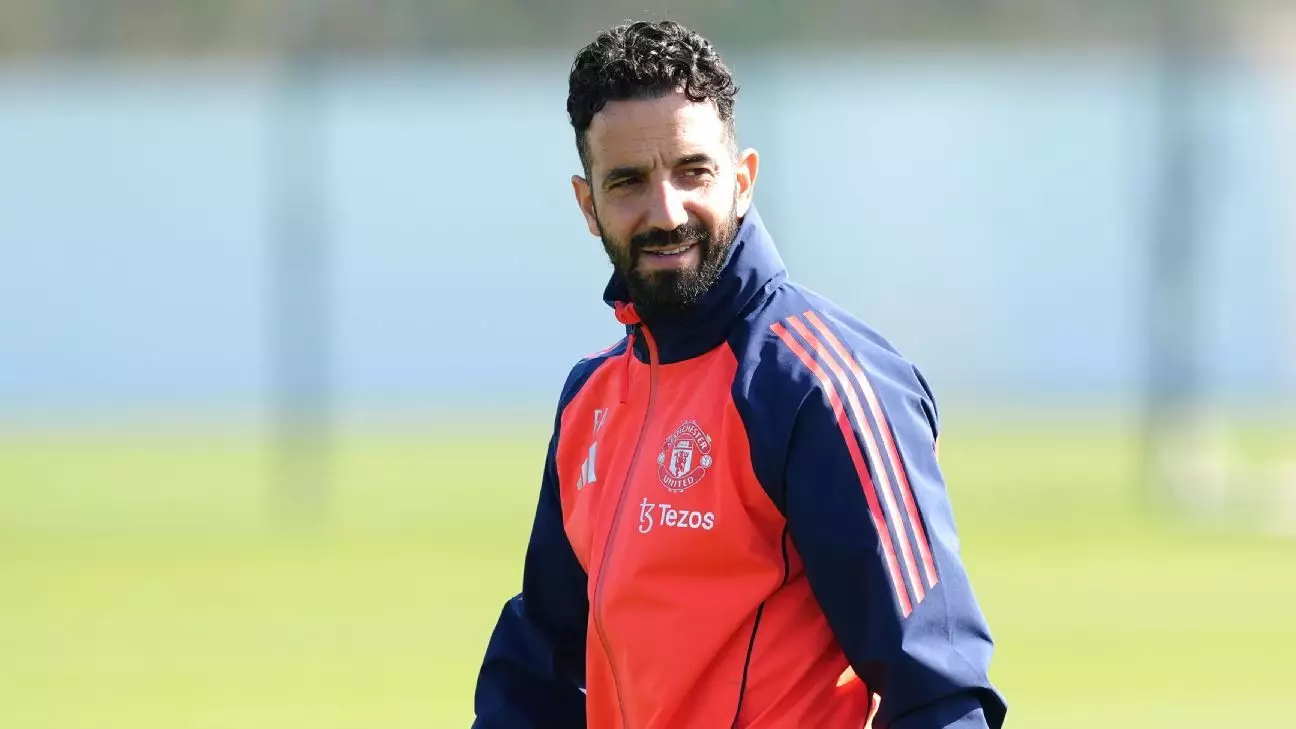Manchester United’s current predicament under manager Ruben Amorim reveals a stark contrast in their performances across the Europa League and the Premier League. Despite boasting a commendable record of five wins and a draw from six Europa League fixtures, the team has struggled significantly in the domestic league, achieving only six victories out of 20 matches. This disparity raises questions about the underlying dynamics affecting the team’s performance. Amorim alluded to the tempo of play as a pivotal factor, arguing that the slower pace of European competitions aligns better with his players’ skill sets, offering them time to reflect and execute their game plans effectively.
The Premier League is renowned for its electrifying intensity and relentless physicality, elements that can overwhelm teams not adapted to such an environment. Amorim’s observation highlights a broader issue facing many clubs: the difficulty in transitioning from the comparatively controlled style of European football to the unpredictable nature of the Premier League. The notion that Manchester United may be ineffective in navigating the frenetic demands of England’s top flight is not merely about tactical shortcomings but also about the psychological and physical strain of rapid decision-making under pressure.
Finding a Silver Lining in European Competition
For Amorim and Manchester United, the Europa League presents an avenue not just for potential silverware but, more crucially, for psychological rejuvenation. A chance at a European title can become the cornerstone for rebuilding confidence, revitalizing player morale, and ultimately, setting the stage for future successes. Success in this competition could bridge gaps and secure a sought-after Champions League spot, which in turn enhances the club’s financial capabilities for upcoming transfer windows.
Amorim emphasizes that winning the Europa League is vital for the club’s trajectory—both immediate and long-term. The implications extend beyond mere trophy acquisition; they touch on aspirations for higher budgets, recruitment of quality players, and enhanced overall competitiveness. By framing the Europa League pursuit as a significant opportunity rather than merely a consolation prize, Amorim cultivates a narrative that galvanizes his team, fans, and the broader club ethos.
Player Health: A Tactical Advantage
The recent returns of players like Kobbie Mainoo and Luke Shaw may also signal a shift in fortunes. After extended absences due to injury, their reintegration could provide the spark needed to ignite United’s campaign in the Europa League. In stark contrast to some of their Premier League struggles, the enhanced depth and tactical flexibility offered by a fully fit squad may give them the edge needed to capitalize on their European opponents.
Amorim’s careful management of player fitness amidst the challenges of the season will be crucial. As he navigates through injuries—as seen with Matthijs de Ligt—it becomes increasingly imperative for United to maintain a cohesive unit capable of adapting to varying game dynamics while simultaneously bolstering their ambitions both in domestic and international arenas.
Through strategic modifications and an acknowledgment of the unique challenges posed by different leagues, Amorim’s Manchester United could yet emerge from this season with not only renewed vigor but a clearer vision for the future.

